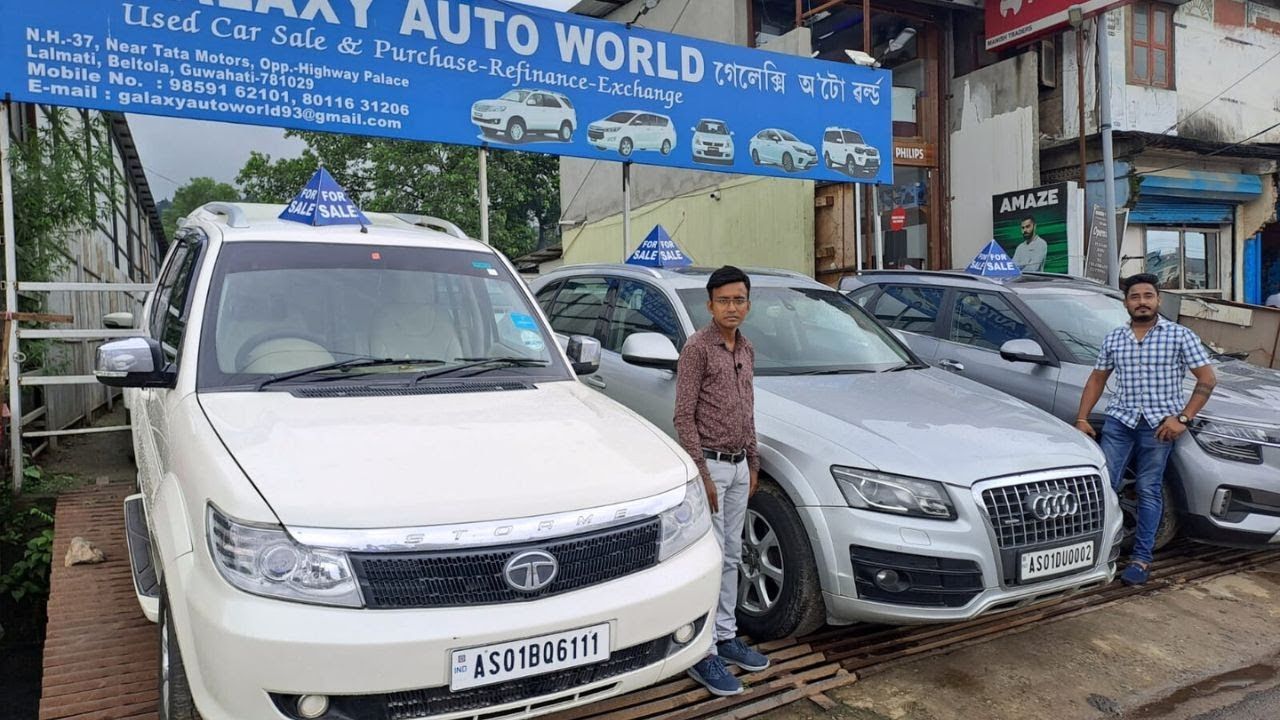Just Bought a Used Car in India? Steer Clear of Trouble: A Guide to Avoiding Used Car Nightmares in the First 30 Days
Published On 29/6/2024, 6:17:28 am Author Uttkarsh SinghJust secured yourself a delightful set of wheels in India, congratulations! From metropolis adventures to open highways, your pre-owned car is primed for creating memories. But hold on a moment, before the music gets pumping and your foot inevitably presses the accelerator, let's address a crucial pit stop: used car problems within the initial 30 days of purchase in India.

The Consumer Protection Act of 2019 (CPA) offers some crucial safeguards during the initial phases of buying a product even if it is a used car.
The CPA empowers you, the consumer, to seek redressal for any defect in a good or service purchased from a trader, if such defect is not disclosed at the time of sale and is major, inherent, or hazardous, and if it arises within a reasonable period of time after the purchase. The concept of a fixed "cooling-off" period, where you can return the car without reason, isn't explicitly mentioned in the CPA. However, courts in India have generally interpreted "reasonable time" in the context of product guarantees and warranties to be around 30 days. Therefore, if you encounter a major undisclosed defect within the first 30 days of buying a used car from a licensed dealer in India, you have a strong legal case to seek repair, replacement, or even a refund under the CPA.
Case in Point: The "Excellent" Engine that Sputtered
Ms. Kapoor, a resident of Kanpur, was thrilled about her newly purchased Maruti Suzuki Swift ZXI, which came with a showroom-gloss finish and a dealer-provided "showroom condition" certificate. However, her joyride was short-lived. Within a month, the car began exhibiting overheating issues.
A visit to a trusted mechanic revealed a blown head gasket, a significant and expensive repair. The mechanic also pointed out signs of previous flood damage, which the dealer's certificate had conveniently omitted. Armed with the mechanic's report and the misleading certificate, Ms. Kapoor filed a complaint with the Consumer Forum, a quasi-judicial body that adjudicates consumer disputes. The forum ruled in her favor, directing the dealer to reimburse her for the repairs.
Ms. Kapoor's experience highlights how unethical practices by some used car dealers in India can take advantage of buyers who may not have the technical knowledge to spot hidden issues.
So, how do you become a used car Sherlock in those first 30 days?
Here's your detective kit:
The All-Seeing Eye (Test Drive)
Don't just take a spin around the block. Test the car on varied terrains – highways, city streets, even a potholed backroad if it fits your driving style. Be hyper-aware of any unusual noises, vibrations, or warning lights.
Noise: A grinding noise while turning could indicate worn-out CV joints. A whining noise from the engine bay might signal a failing alternator or belt. A knocking noise from the engine could be a sign of serious internal problems.
Vibration: A vibration in the steering wheel at high speeds could mean unbalanced wheels or alignment issues. A vibration throughout the car while idling could indicate engine mount problems.
Warning Lights: A lit-up check engine light is a major red flag because it indicates that the car's computer has detected a problem with the engine or emissions system. Ignoring this light can lead to further damage and expensive repairs. Other warning lights, like the ABS or airbag warning lights, should also not be ignored as they can indicate critical safety system malfunctions.
The Trusty Mechanic (Pre-Purchase Inspection)
Never skip this crucial step! A thorough inspection by a trusted mechanic can unearth hidden gremlins before you sign the dotted line.
Honesty is iportant when choosing a mechanic for a pre-purchase inspection. You're trusting them to give you an unbiased assessment of the car's condition, and a dishonest mechanic could downplay serious problems or even collude with the seller.
If you're buying a car from a reputable dealership, they might have their own service department with certified mechanics. This can be a convenient option, but it's still important to check the mechanics' credentials and online reviews.
The Truth Serum (Vehicle History Report)
Get a vehicle history report. This document can reveal past accidents, repairs, and even flood damage. It's like a car's secret diary, and you need to read it!
The availability of digital service history records might vary depending on the car's age and the service center it was taken to. If the car has been serviced primarily at authorized dealerships or workshops for the specific brand (e.g., Maruti Suzuki Service Center for a Maruti car), they might have digital records of your car's service history.
You can contact the service center with your car's registration number (RC) and chassis number to inquire about service history availability. Be prepared to provide proof of ownership, such as the car's Registration Certificate (RC).
Common Culprits: Used Car Nightmares (and How to Deal)
Here are some common used car problems that might pop up within those first 30 days:
The Sneaky Gremlin (Undisclosed Issues): Maybe the air conditioning sputtered during the test drive, but the seller assured you it was "just a loose fuse." If it turns out to be a major AC system malfunction, that's a clear violation of your rights.
The Leaky Faucet (Coolant Leaks): Coolant is the lifeblood of your engine, keeping it from overheating. A leak can be a sign of a bigger problem, like a faulty head gasket. Don't let this one simmer – head straight to a mechanic!
The Phantom Shift (Transmission Trouble): A jerky transmission, slipping gears, or strange grinding noises – these are all red flags that could indicate expensive transmission repairs in your future.
Don't Panic! What to Do if Trouble Finds You
So, you've discovered a problem. Here's what to do:
Gather Evidence: Document everything – photos, videos, repair estimates. The more documentation you have, the stronger your case.
Consult the Seller: Contact the seller in writing (email is best) and explain the issue. Mention the consumer protection laws and your desire for a resolution.
Be Prepared to Negotiate: Depending on the severity of the problem, you might be able to negotiate a repair or a partial refund.
Don't Be Afraid to Walk Away: If the seller is unreasonable or unhelpful, remember – you have rights! Don't be afraid to walk away from the deal.
















